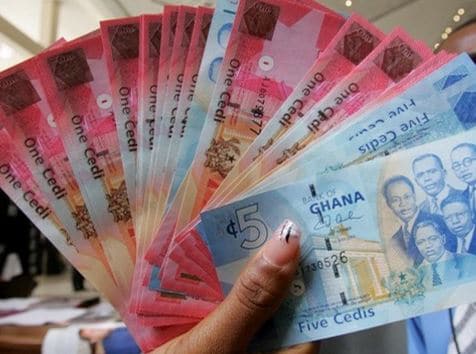The cedi’s woes are set to worsen if current conditions persist, as it is likely to depreciate by more than 20 percent against its major trading counterpart, the dollar, in the next 12 months, RMB – the corporate and investment division of FirstRand Bank – is projecting.
This comes as the local currency has witnessed a sharp decline on the back of increased demand for the dollar-induced liquidity tightening due to recent downgrades of the nation’s Eurobonds, half-decade high inflation, and dwindling confidence in the nation’s policy credibility, among others.
This has only been exacerbated by the ongoing Russia-Ukraine crisis, which has led to a rise in the prices of commodities on the global market as the cedi dipped 6.7 percent month-to-date against the dollar, 16.9 percent year-to-date (YtD) and 21 percent on a year-on-year (YoY) basis.

In a report signed by economist Daniel Kavishe, RMB forecasted the non-deliverable forward (NDF) – a cash-settled, and usually short-term, forward contract market – would price-in further weakness over the next year, resulting in the cedi trading at an all-time low against the greenback.
“NDF markets are pricing-in further weakness of 20 percent over the next 12 months, with the expectation that the cedi will be trading at 8.7 against the dollar by the end of 1Q23,” RMB said.
The cedi’s performance has defied interventions by the Bank of Ghana (BoG) in the process. At the last FX forward rate auction on March 8, 2022, the Treasury sold a total size of US$75million against a total bid worth US$296.75million demanded by investors across 7- to 45-day tenors. This represents a bid cover a ratio of 3.96x, highlighting the strong demand for US dollars.
In view of this, RMB is less than optimistic that further interventions by the apex bank will reverse the cedi’s. Rather, it called for pragmatic measures from the fiscal authorities aimed at renewing confidence in the economy.
“We maintain our view that unless confidence is reignited on the fiscal side, the currency market will remain frail and volatile. The central bank is expected to continue
Intervening; but given broader macroeconomic concerns, this may not be enough to
stave off further weakness,” RMB stated.
Similarly, AZA Finance has projected sustained pressure on the cedi due to lower export inflows, as well as increased capital flight from foreign investors exiting the country’s local debt market.
“Against that backdrop, we expect further pressure on the cedi in the coming weeks as liquidity remains tight,” AZA indicated.
Checks by the B&FT show that as of Tuesday, March 15, the cedi was trading against the US$ at an average of GH¢7.9 on the retail market.
Source: www.bftonline.com





